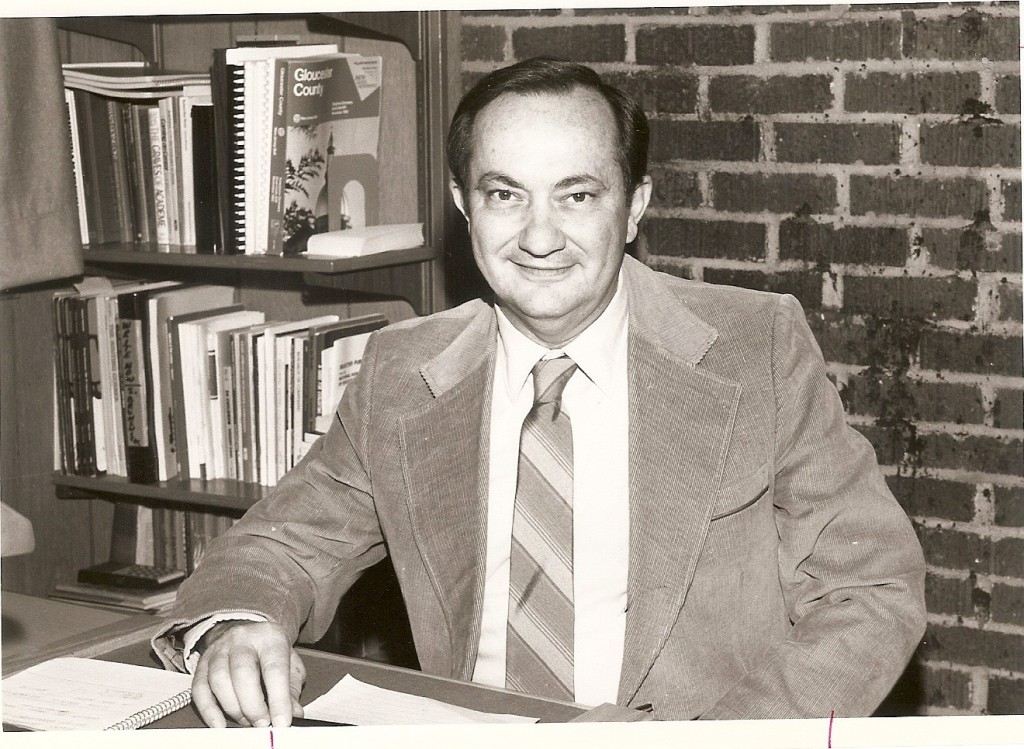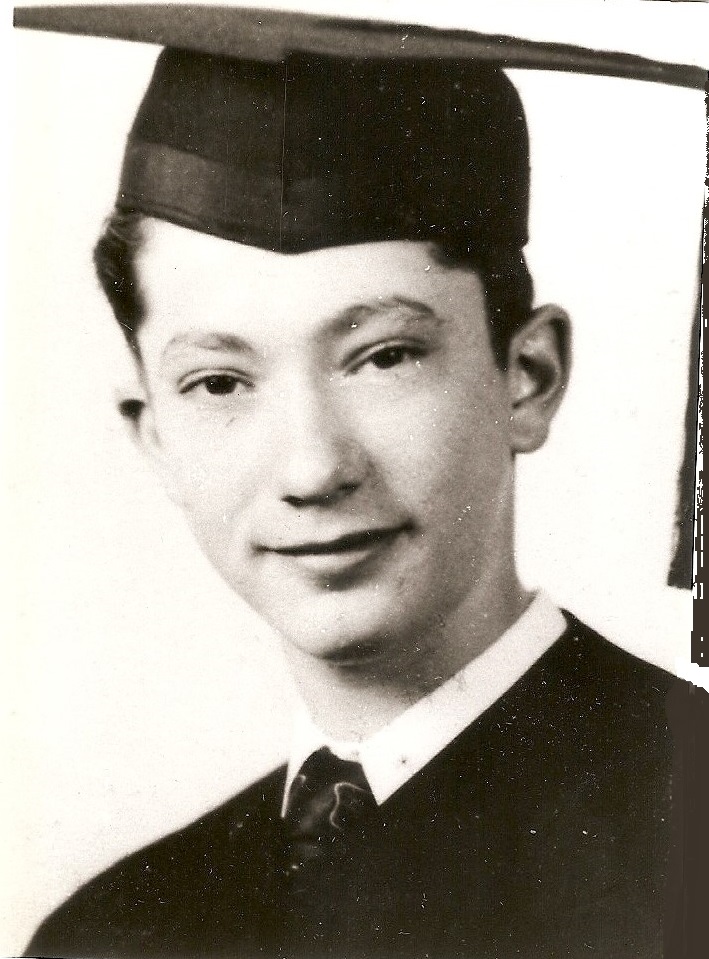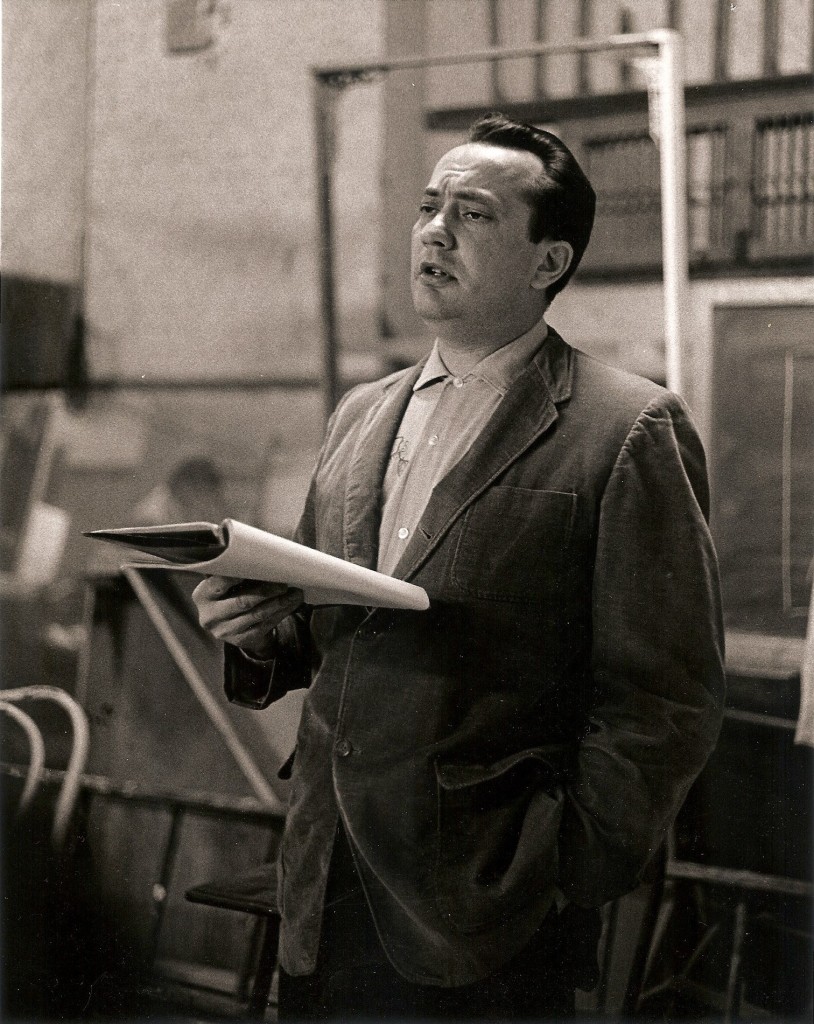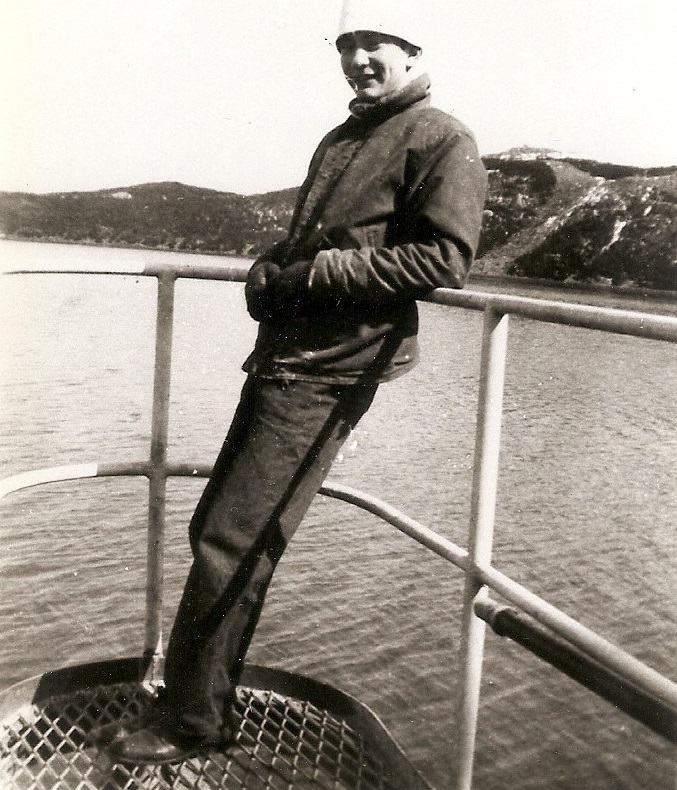Walt Vail, who just celebrated his 88th birthday, spent his entire life studying theater, working in the Philadelphia theater world, and writing numerous plays—many of which were performed all over the US. After serving in the US Coast Guard on the cutter Ingham (a decorated vessel served as a floating embassy in European waters in World War II), Vail served as a teacher and administrator for 30 years. He now lives on a pension that supports him while he writes more plays—but he didn’t wait for it. He started play-writing in college at age 24.
Vail helped start Society Hill Playhouse with Jay and Deen Kogan and worked for such professional theaters as Hedgerow Theatre, Theatre Catalyst, and The Philadelphia Festival Theatre for New Plays. In this, the second of a multi-part interview with Vail (read part one here), he tells Phindie how he became one of the most prolific playwrights in Philadelphia.

Henrik Eger: Tell us about your evolution as a playwright.
Walt Vail: It’s not easy to look back on 60+ years of work on plays, 1951-2015, [but] I remember my first New York production. A group of friends from Penn State—actors, mostly—had moved to NYC after graduation to try to “make it” in Gotham. They spotted a play of mine that was published in Purdue University’s First Stage Magazine, now long defunct. They contacted me and wanted to do it for Roulette Theatre [in Brooklyn, NY].
The night I went to see it, they told the audience they had to do my play because I was present—not roll the roulette wheel to randomly choose a play from their repertoire.
Eger: How do your plays evolve?
Vail: I lead Playwrights Circle for Philadelphia Dramatists Center, and my plays get read in [that] circle with my colleague playwrights, scene by scene, over many meetings, with plenty of feedback from the dozen or so writers who attend. Six or seven drafts of a script are usual.
Eger: You studied theater, wrote plays, worked in the theater, and taught theater. And somewhere in between, you met Marion Angelitis, who directed you and others in Actor’s Stock. What happened then?
Vail: In 1957, Marion and I married and we went back to Penn State for my M.A. in theater and playwriting, then returned to Philly in 1958 for the birth of my son Jason.

Eger: Working in the theater didn’t pay much, I suppose. How did you manage financially?
Vail: From about 1960-1965, I was working in the Philadelphia School District as a Television Teacher on WHYY-TV, channel 12. For three years, I wrote two TV scripts a week and produced and presented “Our Neighbors in the Western Hemisphere,” a twice a week half-hour Educational TV program that was used throughout the city schools for sixth grade instruction.
This kept me so busy, I had little time for theater work—but I did manage to be in two professional pre-Broadway shows at The Walnut: Inherit the Wind, and Don’t Drink the Water. I shared the stage with Lou Jacobi, Paul Muni, and other great actors. In 1965, I moved to Glassboro, NJ, to install, program, and administrate a closed circuit TV system for the entire school district that connected five schools and all classrooms.
Eger: Television—modern theater for schools?
Vail: The superintendent of schools had a nutty idea that an elementary school classroom could be addressed by the high school History teacher on some point of History. What I did with the system was to rebroadcast educational programs to all levels, K-12, after videotaping them off of Public or commercial TV. I also had a small truck containing a control room and two cameras, with which I visited the schools and videotaped student-made programs and activities. It was a wild and crazy job, but it was fun.
Eger: You are known for your honesty and directness—with yourself and others. Would you be willing to tell us more about your personal background?
Vail: You may not know that my father was Jewish. His name was Morris Weinstein, and he was my mother’s lover. My mother was a failed Baptist, and she named me after her husband in an attempt to let him think I was his child. Of course, many of my Jewish friends have informed me I am not Jewish, lacking a Jewish mother. I once, as a child, asked my father why I was not Jewish like him. He said he didn’t want me to be Jewish, because it was too hard to be Jewish.
Eger: How did your mother cope with this situation?
Vail: Mother obviously was the most important person in my youth. I honor her memory. There’s a story about those curls in my childhood pix. One day my “step-father” Walt Vail [who did not know who the real father was], took me to a barber, had them cut off. [He] said now I looked like a boy. My Mom cried for an hour—guess it became another reason for her to detest him.
Eger: Did you ever see your biological father in those days?
Vail: My birth father used to stop at my school at recess time to check up on me. I never lived with him—but he was my mother’s lover—she was in an unhappy marriage. Late in life, she married him. By that time, I was an adult with my own family.
Eger: Given your semi-Jewish background, did you ever write a Jewish-themed play?
Vail: I married a wonderful woman [Marion Angelitis] who was first generation American—her mother was an immigrant from Lithuania. One day, I picked up a book called The Kovno Ghetto Diary and read it through. It inspired me to write a Holocaust play that I called Dolka. It’s about a former German camp guard who has become successful in America, [but] who is haunted by the ghost of a Lithuanian Jewish girl whom he killed in the camp at Kovno. Meanwhile, his American granddaughter has become engaged to a Jewish boy.
Eger: That sounds like a haunting play. Your wife clearly was quite an inspiration for you, always by your side.
Vail: Marion, my wonderful wife of many years, passed away of a stroke in January of 1991. I still think of her daily. Christmas is always bittersweet for me, because Marion had the stroke just before Christmas 1989, and I had her at home in a wheelchair until January 1991. I like to think she lived to see one more Christmas, a holiday she loved.
Eger: I’m sorry to hear it. Is there anyone else now who gives you feedback on your work?
Vail: I read all of my work aloud with my friend Joy Winston, from whom I get the woman’s viewpoint. Joy was my secretary at Glassboro School District for 20 years and a good friend. I retired in January 1992, and Joy’s husband died shortly after. When Joy retired in 1993, we became friends and lovers, and Joy has been my close friend ever since—I see her daily for dinner. It seems I can write plays on my computer, and not much else.

Eger: Have you ever submitted a script to a playwriting contest?
Vail:Peepers won a playwriting contest at The Open Space Theatre in Greensboro, North Carolina, and, as a result, was given a production there in November 2010.
Eger: How do local theaters respond to your scripts?
Vail: The truth is, no one refuses outright to read a play if I send it. [Dramaturg] Walter Bilderback at Wilma reads my stuff. Arden reads, PTC reads. Years ago, I had a reading at Philadelphia Theatre Company—Sara Garonzik knows me, and her lit manager reads local plays. I do get read and considered [in Philadelphia], but I have much better luck in NYC or theaters around the country.
Eger: Walt, you also had success in the Philadelphia area.
Vail: Deen Kogan, co-founder and Artistic Director and Producer at SHP has a personal interest in baseball—I have attended baseball games with her—so, of course, I sent Branch to her, my play about how and why Branch Rickey hired [black baseball player] Jackie Robinson to “break the color barrier” in 1947. She liked it and produced it in February 2012. It helped that Branch is a one actor show, and fit well into SHP’s ground level theater space.
Eger: And your plays have been performed in many other places.
Vail: True. I’ve been produced at theaters in Texas, California, Oregon, Louisiana, Vermont, and Massachusetts—mostly short plays. [I’ve also been] published by Brooklyn Play Publishers, Third Coast Magazine, and Eldridge Play Publishers.
Eger: What are some of your most recent plays that were performed or published?
Vail:Silent Night was published in Western Michigan University’s Third Coast literary magazine, Fall of 2013. I also had a production of two of my scripts: Tybalt & Mercutio Live! done in April of 2014 at Manhattan Repertory Theatre on 42nd St., NYC. La Duse: Woman & Actor opened at Sea Change Theatre in Beverly, Mass. in March 2015.
Eger: What plays are you working on now?
Vail: My newly written play Burying Mother, a comedy, is character-driven. My play Studs Terkel Is Listening is full of real life American characters. The Case & Trial of Peter Zenger deals with

significant historical events. Zenger was a colonial case that contributed to our Bill of Rights and freedom of press and speech.
Eger: Sounds exciting. I am looking forward to seeing them on stage. Walt, thank you for your willingness to share the thought-provoking secrets of your life.
Vail: Henrik, I personally don’t mind at all—it’s who I am. Right now I’m due at Joy’s house for supper. Thanks.

2 Replies to “Reflections on Playwriting: A personal interview with Walt Vail, one of Philadelphia’s most experienced playwrights”